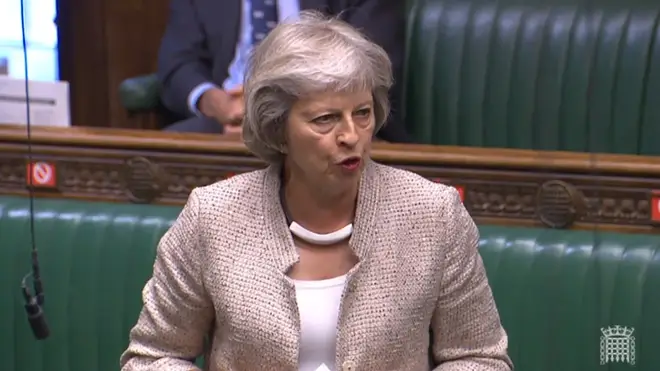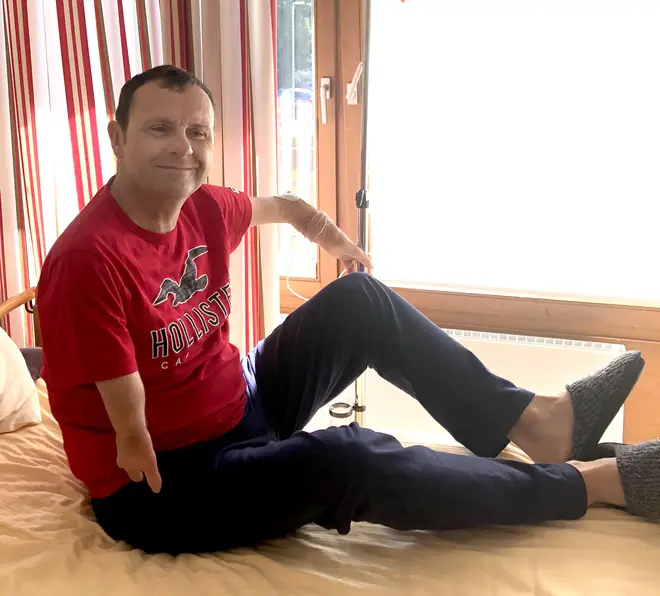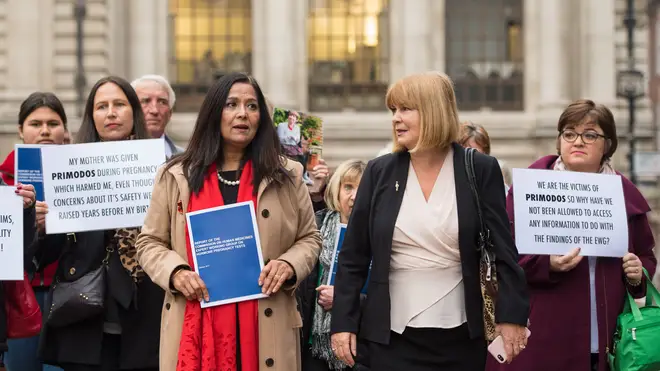
Matthew Wright 7am - 10am
24 August 2020, 08:29

Theresa May has urged the Government to consider "redress" for the victims of the Primodos hormone pregnancy test blamed for causing serious birth defects.
The former prime minister said, "lives have suffered as a result" of using the drug and called for the victims to receive more than just the apology issued to them so far.
Primodos was a hormone-based pregnancy test used on women in the 1960s and 1970s before being withdrawn from sale in the UK in 1978.
Speaking in an interview for a Sky News documentary, Ms May commended campaigners who had been "beating their head against a brick wall of the state" which tried to "stop them in their tracks".
In 2017, a review found that scientific evidence did "not support a causal association" between the use of hormone pregnancy tests, such as Primodos, and birth defects or miscarriage.
However, in 2018, then-leader Ms May ordered a second review as she felt that it "wasn't the slam-dunk answer that people said it was".

"At one point it says that they could not find a causal association between Primodos and congenital anomalies, but neither could they categorically say that there was no causal link," she said.
Last month, the second review concluded there had been "avoidable harm" caused by Primodos and two other products - sodium valproate and vaginal mesh.
Ms May told Sky: "I think it's important that the Government looks at the whole question of redress and about how that redress can be brought up for people.
"They've had an apology and that's important, but obviously, lives have suffered as a result."
The review concluded that "from 1967, hormone pregnancy tests should no longer have been available" due to the "suggestion of increased risk".
However, the tests were still available in the UK until 1978 before they were fully withdrawn.
A bitter row lasting half a century has followed, with affected families still desperate for answers.

The former UK leader said: "I almost felt it was sort of women being patted on the head and being told 'there there dear', don't worry. You're imagining it. You don't know. We know better than you do."
She added: "I think this is a very sad example of a situation where people were badly affected, not just by the physical and mental aspect of what Primodos actually did, but by the fact that nobody then listened to them...
"One of the other problems within the public sector is there's often a natural inclination to protect the institution and not listen to people's complaints in order to sort of clam up and protect the institution itself.
"When I became prime minister, the first speech I gave on the steps of Number 10 was about social justice and the need to deal with burning injustices. And I think the way that the campaigners on Primodos were treated was an injustice.
"They deserve to be treated fairly. They weren't. They weren't listened to."